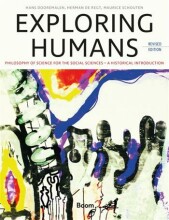Inleiding en antieke filosofen - Aristotle's Empiricism
4 important questions on Inleiding en antieke filosofen - Aristotle's Empiricism
What is Aristotle's Empiricism?
Aristotle said that when humans are born, their mind a Tabula Rasa is. What does he mean with this?
Quote: "Nothing is in the intellect which was not first found in the sense."
Who made this statement, does it relate to Rationalism or Empiricism and in what way?
- Thomas Aquinas (priest, philosopher and theologian).
- It relates to Empiricism.
- He says that everything in our intellect, like reasoning, can only exist through our perception, hence using Empiricism.
- Higher grades + faster learning
- Never study anything twice
- 100% sure, 100% understanding
What is the plain difference between Plato's Rationalism and Aristotle's Empiricism?
- Plato's Rationalism states that we have a 'theory' of the (perfect) universe in our minds and therefore have to adapt our observations according to that theory.
- Aristotle's Empiricism claims the opposite: By gathering lots of observations you can gather your theory ( based on the observations).
The question on the page originate from the summary of the following study material:
- A unique study and practice tool
- Never study anything twice again
- Get the grades you hope for
- 100% sure, 100% understanding
































